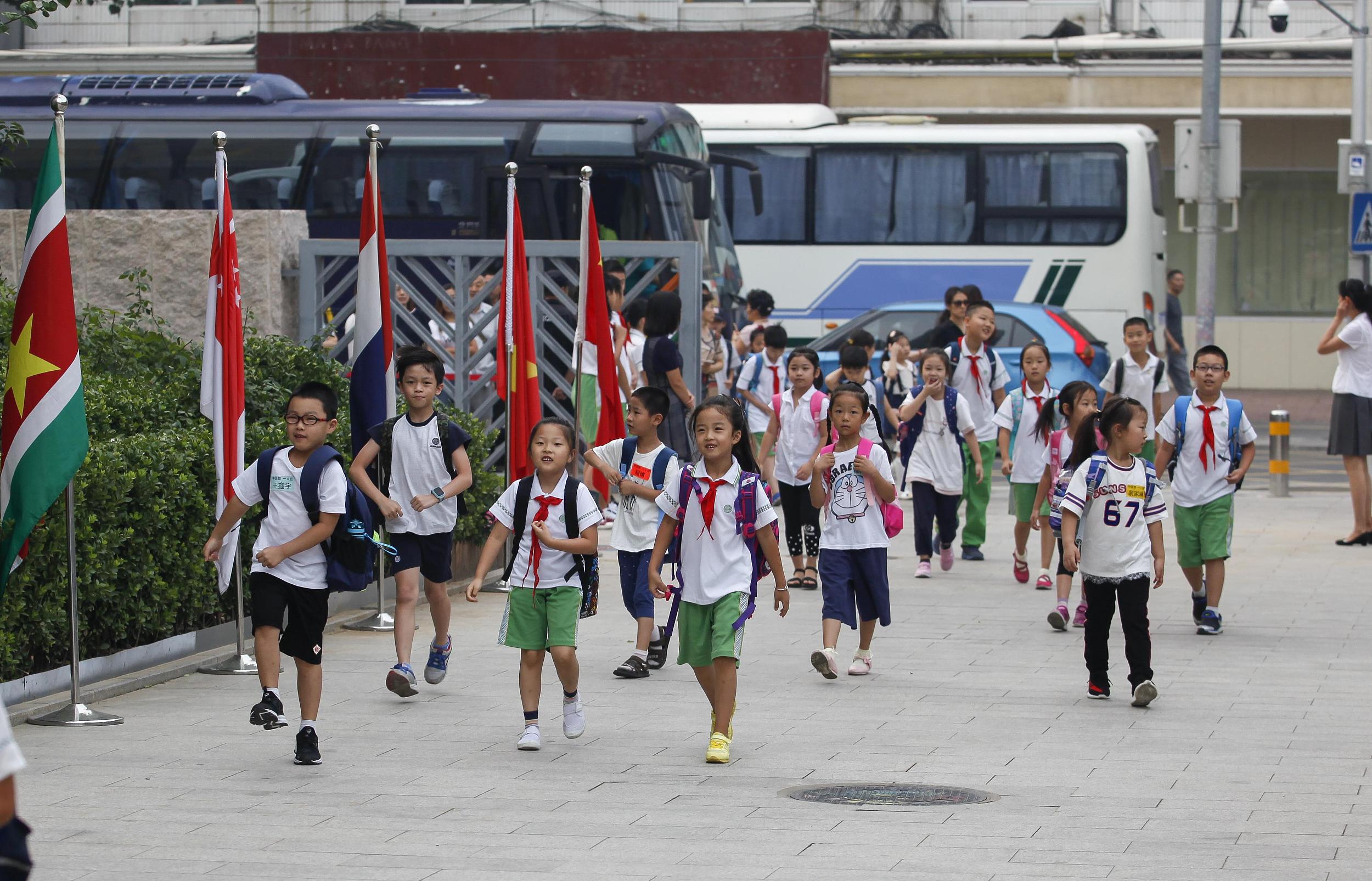Education Options for Foreign Minors in China

Students from Fangcaodi International School in Chaoyang District, Beijing, are entering the campus.(PHOTO:VCG)
By?Staff?Reporters
Education facilities for foreign minors are crucial for attracting international talents to China, and because the country’s national and local governments place great value in education, they make?a lot of efforts to meet diverse educational needs.?Aside from embassy schools for diplomatic personnel, foreigners have three main options in China: schools for children of foreign nationals, local public schools, and private schools.
Schools for children of foreign nationals are educational institutions established by foreign entities, international organizations, or legally resident foreigners in China. These schools admit children of foreign nationals with residence permits and follow educational models from their home countries. They offer an education aligned with their country's standards, while enabling interactions with global peers.
Local public schools follow China's national curriculum. They provide foreign minors an opportunity to experience the authentic China's education system and culture, while interacting with local students. Some public schools also offer specific international classes for foreign students. While this offers a valuable cross-cultural experience, non-Chinese-speaking students may face challenges in adapting to the language and educational framework.
Private schools are another option. These independently operated schools in China often offer flexible curricula and teaching approaches. Some provide bilingual education by combining Chinese curricula with international principles.
Foreign children's education management in China follows the principle of territorial jurisdiction. Each province, city, or autonomous region formulates specific policies based on local education resources.?For example, in Beijing, relevant notifications can be found on the official website of the Beijing Municipal Education Commission.?According to the Beijing municipal regulations, if one parent holds a work-type residence permit in Beijing, the student is treated as a local resident. In Shanghai, foreign students enrolling in schools for children of foreign nationals need to have their overseas birth certificates notarized.
For foreign students wishing to study in China, it is advisable to prepare in advance, including the overseas birth certificate, the parents' work residence permit, and the child's valid visa. Specific requirements can be found on the official websites of the local educational administration departments.
As of 2022, there were 142 schools for children of foreign nationals and 562 private schools with international characteristics in China. Chinese public schools qualified to enroll foreign students welcome all foreign children. China remains committed to expanding education options for the children of expats.






